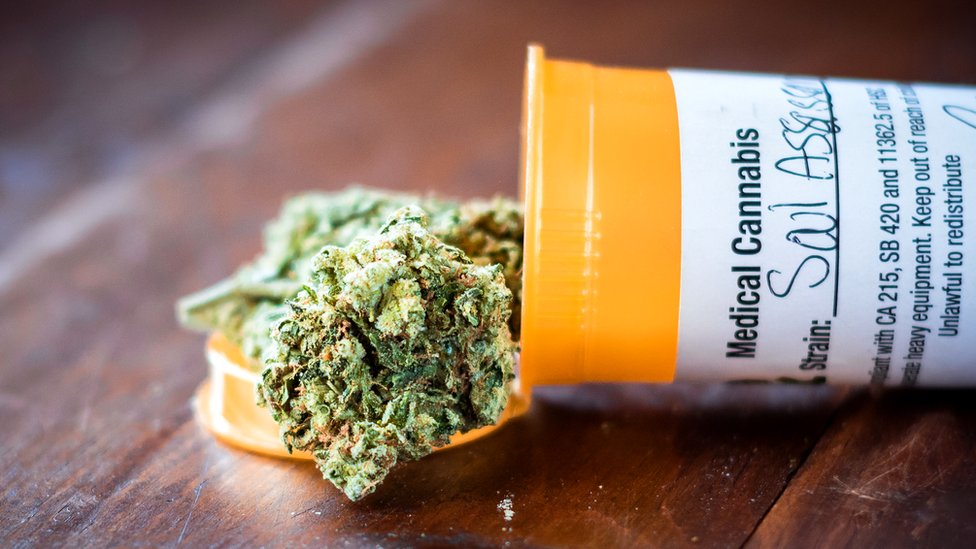How to Officially Qualify for Kentucky Medical Marijuana
How to Officially Qualify for Kentucky Medical Marijuana
Blog Article
Comprehending the Lawful Landscape Surrounding Medical Marijuana Worldwide
You're likely conscious that perspectives in the direction of medical cannabis are moving worldwide, however the legal structures can be confusing. Some nations have welcomed it, while others stay strictly opposed. Understanding these distinctions is essential, especially as individual needs and public assumptions advance. What drives these variations, and exactly how do they impact access for clients seeking relief? The answers may amaze you.
Historic Context of Medical Cannabis Regulation
As you explore the historic context of medical marijuana regulations, you'll discover that its origins stretch back thousands of years. Old cultures, from the Chinese to the Greeks, acknowledged cannabis for its medicinal buildings.
Quick forward to the 19th century, when Western medication began to welcome cannabis a lot more widely. Doctors prescribed it for every little thing from migraines to labor discomforts. The early 20th century saw a shift, as social understandings changed, leading to stricter laws and stigmatization.
Comprehending this abundant background helps you value the intricacies of contemporary clinical cannabis legislations. It's a journey with time that reveals the evolving partnership in between society and this powerful plant.
Current Legal Status by Area

The United States And copyright Summary
Steering with the landscape of clinical marijuana laws in The United States and copyright reveals a patchwork of regulations that differ considerably by area. In the USA, some states have actually totally welcomed clinical cannabis, allowing people access with dispensaries, while others preserve stringent restrictions. copyright, on the other hand, has actually legislated clinical cannabis across the country, offering a managed framework that sustains person requirements. In Mexico, current legislation has actually made strides in the direction of legalization, but execution remains a work in development. Maneuvering with these diverse laws can be tough, as each jurisdiction has its own requirements for getting clinical marijuana, including certifying conditions and application procedures. Staying informed concerning local regulations is crucial for anyone considering clinical cannabis in North America.
Europe's Diverse Rules
Guiding through the legal landscape of medical marijuana in Europe can be intricate, provided the significant variations in regulations throughout different countries. In some nations, like Germany and Italy, clinical marijuana is legal and obtainable with a prescription. Others, such as France, have more restrictive plans, permitting only limited accessibility with specific tests. The UK has also made strides, permitting specific cannabis-based medications, but the process remains cumbersome. On the other hand, countries like the Netherlands accept an extra liberal approach, though official laws still hang back. As you explore these diverse guidelines, it is vital to remain educated, as regulations can transform swiftly and vary considerably from one nation to another. Recognizing these subtleties can help you navigate the advancing landscape properly.
Asia-Pacific Legal Trends
The Asia-Pacific region showcases a rapidly advancing landscape for medical cannabis legislations, showing a mix of dynamic and conventional approaches. Nations like Australia and New Zealand have actually embraced legalisation, using controlled access to medical cannabis. In Australia, people can acquire prescriptions, while New Zealand just recently passed a vote to allow clinical usage.
On the other hand, countries like Japan and South Korea maintain stricter guidelines, allowing just limited accessibility to cannabis-derived items. Regardless of these constraints, public viewpoint is moving, with raising telephone calls for reform.
As you browse this complex landscape, stay educated about local regulations, as they can vary considerably from one nation to another, influencing individual accessibility and sector growth in the area.
Trick Countries Leading the Method in Medical Cannabis
As you check out the landscape of clinical marijuana, you'll discover numerous nations establishing outstanding legalization turning points. These countries not only develop regulative structures that ensure risk-free access but also lead the method in medical research improvements. Recognizing their strategies will offer you useful insights right into the future of cannabis use in health care.
Legalization Landmarks Attained
While several countries come to grips with the complexities of cannabis law, a number of have actually made significant strides in legislating medical marijuana, establishing vital criteria. For instance, copyright became a pioneer in 2001, enabling patients access to medical cannabis, paving the means for other nations. In 2018, Australia adhered to match, establishing a structure for prescription cannabis, which has actually given that broadened. Germany signed up with the movement in 2017, making it possible for doctors to recommend clinical cannabis to clients in need. In the United States, different states have legislated clinical cannabis, developing a patchwork of legislations that influence public assumption and plan - Kentucky Medical Cannabis Doctor. These turning points illustrate a growing acceptance of medical marijuana, motivating even more countries to reassess their positions and accept possible health benefits.
Regulative Frameworks Explained
Comprehending the regulatory frameworks controling clinical marijuana is essential for comprehending how different countries approach its usage. In position like copyright, you'll discover a comprehensive system that includes licensing for producers, strict quality assurance, and guidelines for medical care specialists. The United States provides a jumble of guidelines, with states like California and Colorado leading in dynamic policies, yet government legislations still create challenges. At the same time, nations like Germany and Australia have carried out organized programs that manage patient accessibility and farming. Each nation has its own set of regulations, which can impact every little thing from recommending techniques to product availability. By acquainting yourself with these great site structures, you can better understand the worldwide landscape of medical cannabis.
Medical Research Study Advancements
Countries around the globe are making substantial strides in medical marijuana study, leading to a far better understanding of its restorative potential. In the United States, institutions like the National Institutes of Health (NIH) are moneying research studies on cannabis's effects on persistent pain and epilepsy. As these nations push forward, you'll witness an advancement in medical practices and a more clear photo of exactly how cannabis can boost individual end results internationally.
Obstacles and obstacles to Accessibility
Accessing clinical marijuana can be stuffed with obstacles that stem from varying state regulations and policies. You might find that in some states, the process to obtain a clinical marijuana card is complex and prolonged, calling for comprehensive paperwork or assessments with approved medical care providers. Furthermore, also if you certify, the number of dispensaries can be limited, making it challenging to locate a nearby source.
Preconception surrounding cannabis usage can also develop barriers, as some medical care service providers may be reluctant to talk about or prescribe it. Moreover, insurance policy coverage for clinical cannabis is usually doing not have, forcing you to pay out-of-pocket. In countries where cannabis continues to be illegal, the risks of legal repercussions can deter people from seeking the therapy they require. Guiding with this complicated landscape can feel frustrating, yet understanding these difficulties is crucial for anyone thinking about clinical cannabis as a healing choice.
Effect of Clinical Marijuana on Health And Wellness Outcomes
While many individuals stay unconvinced about marijuana, study significantly reveals its prospective benefits for different health and wellness conditions. You may be shocked to learn that medical cannabis can assist reduce persistent discomfort, lower swelling, and manage symptoms of stress and anxiety and anxiety (Kentucky Medical Cannabis Doctor). For individuals fighting conditions like epilepsy or numerous sclerosis, marijuana has actually shown considerable healing effects, offering relief when standard therapies fail
In addition, research studies show that some parts of cannabis, such as CBD, can boost general high quality of life for clients undergoing therapies like radiation treatment. It's vital to consider that specific responses to marijuana can vary extensively, so what help someone might not function for one more. As you check out the prospective effect of medical cannabis on wellness outcomes, maintain an open mind and get in touch with with medical care professionals to tailor a treatment plan that fits your distinct requirements and scenarios.
The Role of Healthcare Providers in Patient Accessibility
As you navigate the complexities of medical cannabis legislations, it is important to acknowledge the crucial duty doctor play in person accessibility. These specialists act as essential guides, aiding people understand their options and browse legal requirements. They can evaluate whether medical cannabis is suitable for your condition and give documentation needed for legal gain access to.
Moreover, medical care carriers frequently educate individuals concerning the prospective benefits and dangers of cannabis use, guaranteeing informed decisions. They can suggest appropriate stress, dosages, and techniques of intake customized to specific needs. Their support is necessary, particularly in areas medical cannabis companies where laws vary substantially.

Future Trends and Forecasts for Clinical Marijuana Regulations
Healthcare carriers will certainly proceed to form the landscape of medical cannabis legislations as they promote for person demands and engage with policymakers. You can expect an expanding pattern towards even more comprehensive regulation that acknowledges the restorative benefits of marijuana. As research expands, even more countries will likely adopt laws that promote gain access to for clients experiencing various problems.
Popular opinion is moving, as well, with enhancing acceptance leading the way for reform - Kentucky Medical Cannabis Doctor. You might see a surge in medical marijuana programs tailored to specific demographics, such as experts and seniors
In addition, as health care systems incorporate marijuana into therapy procedures, insurers might begin covering cannabis-related costs, better legitimizing its use.
Finally, worldwide cooperations can arise, causing standardized guidelines and quality assurance procedures. On the whole, the future of clinical cannabis legislations shows up appealing and vibrant, driven by proof, campaigning for, and patient-centered treatment.
Often Asked Questions
Exactly How Do International Treaties Affect Medical Cannabis Regulations?
International treaties can form your country's clinical cannabis regulations by establishing limitations or guidelines. When nations comply with these contracts, it frequently influences regional regulation, making it vital for you to stay educated on changes.
What Are the Adultness Needs for Clinical Cannabis Usage?
The adultness for medical marijuana use varies by territory. In many places, you need to be at the very least 18, yet some enable minors with adult permission. Always check regional laws prior to proceeding with medical cannabis.
Can Employers Fire Employees for Medical Marijuana Use?
Yes, employers can terminate you for medical marijuana use, depending upon state legislations and business policies. If your job calls for medicine screening or if marijuana impacts your performance, they might act. Constantly inspect your work environment regulations.
Exist Constraints on Clinical Marijuana Advertising And Marketing?
Yes, there are constraints on clinical marijuana marketing. You'll find regulations differ by territory, commonly forbiding misleading insurance claims and requiring specific wellness cautions. It's vital to examine neighborhood regulations to ensure conformity prior to advertising.
Exactly How Do Medical Marijuana Regulation Differ for Veterans?
Clinical cannabis legislations for experts commonly consist of unique arrangements, allowing simpler accessibility or benefits. Some states prioritize experienced demands, while others may restrict usage. It's crucial to examine your local guidelines for specifics.
While numerous nations grapple with the complexities of marijuana policy, several have made substantial strides in legalizing medical cannabis, establishing vital precedents. In the United States, different states have actually legislated clinical marijuana, creating a patchwork of legislations that affect public perception and policy.Accessing clinical marijuana can be filled with obstacles that stem from varying state regulations and regulations.As you navigate the intricacies of clinical marijuana regulations, it is essential to recognize the essential internet duty health care providers play in client gain access to.Health care suppliers will certainly proceed to form the landscape of clinical cannabis legislations as they promote for person demands and involve with policymakers.
Report this page